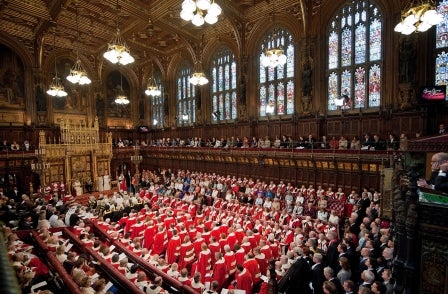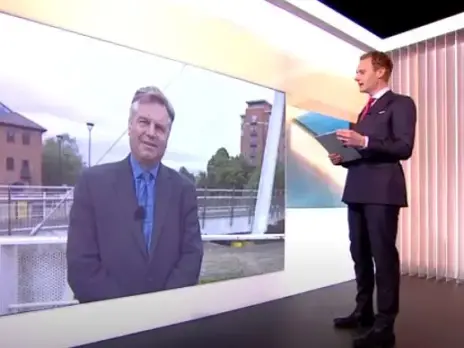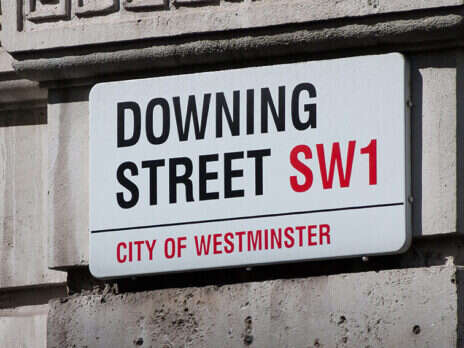
The Media Bill has been passed removing the threat of state-backed press regulation and modernising broadcasting regulations for the streaming age.
The bill includes the repeal of Section 40 of the Crime and Courts Act 2013, which has yet to be enacted. Section 40 would have required news publishers to pay both sides’ costs in libel and privacy actions whether they won or lost unless they were members of a Royal Charter-backed press regulator.
Section 40 would have forced the UK’s main press regulator, IPSO, to adhere to the press regulation Royal Charter and become regulated itself by the statute-backed Press Recognition Panel.
The Media Bill, like the Digital Markets, Competition and Consumers Bill, was rushed through in the “wash-up” of outstanding legislation following Prime Minister Rishi Sunak’s decision to call a general election on 4 July.
The Government made two 11th-hour concessions on public service broadcasting, and accepted amendments put forward by BBC presenter and independent crossbench peer Baroness Bull.
The first amendment ensures that Reithian principles to inform, educate and entertain remain an explicit part of public service broadcasting.
Lord Parkinson of Whitley Bay, minister in the Department for Culture, Media and Sport, said: “They are admirable and important principles, and we do want them to remain key to the public service broadcasting ecosystem.”
The Government also accepted Lady Bull’s amendment clarifying the importance of educational programming for children and young people.
What are the key provision of the Media Bill?
The Media Bill’s provisions include:
- Ensuring that the apps of public service broadcasters (BBC, ITV, Channel 4 and Channel 5) are easy to find on smart TVs and other devices
- Requiring video-on-demand services such as Netflix to be covered by the Ofcom content code
- The repeal of Section 40 of the Crime and Courts Act, removing what many see as the threat of Government-backed press regulation
- The listed events regime is updated to ensure major sporting events such as the Olympic Games, FIFA World Cup and Wimbledon remain free to air via a public service broadcaster
- New rules to ensure the BBC, commercial and community radio stations are available via smart speakers.
Section 40 repeal result of a ‘wicked’ deal with newspaper owners
Some peers were left disgruntled that the Bill will repeal Section 40 of the Crime and Courts Act 2013. This law was passed after the Leveson Inquiry, but never implemented.
Now, more than ten years later, the Government believes it should be repealed, as they say it poses a threat to press freedom.
Independent crossbench peer Lady Hollins disagreed with the Government, and said Parliament should “create an incentive for newspapers to do the right thing and join a regulator that would protect the public”.
Liberal Democrat former minister Lord McNally accused the Government of “fixing a deal” with the national newspapers over the repeal of Section 40.
He said: “We all know it has been put into this Bill like a sore thumb, to fix a deal between the Conservative Party and the major newspaper proprietors, that’s the wicked world we live in.”
Lord Parkinson told the Lords that repealing the law is a manifesto commitment, and said: “The Government is committed to protecting media freedom and the invaluable role of press freedom in our society and our democracy.
“As part of this, we’re committed to independent self-regulation of the press, and that extends to endorsing regulators of which they should become members.”
Labour peer Lord Lipsey, who said he has been involved in 11 wash-ups during his more than 50 years in Parliament, said: “I think that the Government is trying to smuggle things through under wash-up which should not be in the legislation.”
He said that wash-up is designed for Bills on which there is consensus, and on the issue of Section 40, he insisted: “There is no consensus on this among the cross benches, there is no consensus among the Lib Dems and there is no consensus, if I’m honest about it, among Labour back benches.”
However, the Labour front bench said they had agreed to this legislation going through, with Lord Kennedy of Southwark saying: “The motion has been agreed by the House.”
Lords Leader Lord True acknowledged that it is “uncomfortable”, but told peers: “The raw reality of politics apply and only things can be done which have the agreement of the official Opposition and the agreement of the Government.”
Media Bill welcomed by public service broadcasters
Before the Media Bill was passed, the CEOs of major public service broadcasters issued a statement giving it their support.
They said: “The reforms proposed in the Bill will update key aspects of media legislation for the online TV era, to ensure audiences continue to benefit from the highest quality UK-originated content from the PSBs, and help the UK’s content sector thrive for years to come.”
Afterwards, Sajeeda Merali, chief executive of the PPA which represents specialist and magazine publishers in the UK, said: “By fulfilling its manifesto commitment of repealing Section 40, the Government is removing unnecessary and burdensome regulatory uncertainty.
“This provides the businesses that keep the publishing ecosystem running with much-needed security, which is particularly welcome at a time when the sector is responding to rapid change in emerging technology and digital information services.”
Email pged@pressgazette.co.uk to point out mistakes, provide story tips or send in a letter for publication on our "Letters Page" blog







